Thirteenth Project: Solar Water ATM* and Bio-sanitation for Agrarian Community
*Water ATM: Water vending unit
1) Project site
Cheliyama Village, Raghunathpur-II Block, Purulia District, West Bengal State, India
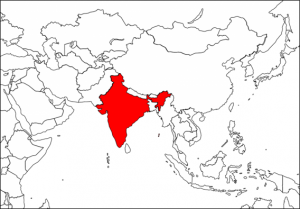 |
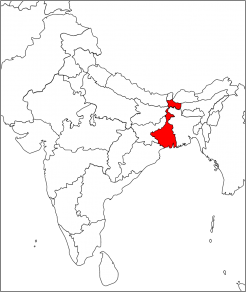 |
| India | West Bengal |
2) Beneficiaries
About 2,200 people in the Cheliyama Village and Neighboring villages
3) Project period
April to November, 2019
4) Local partner
South Asian Forum for Environment (SAFE)
https://www.safeinch.org/
5) Water problems at the target site (before the project)
There was no managed water resources that can be shared by the residents of Cheliyama Village, and the people fetch water from puddles and ponds nearby.
In Cheliyama Village, fetching water from those water sources was a job for women and most women go to the water sources, 2 to 2.5 kilometres away from the village, walking about 5 hours every day. Thus, due to spending a lot of time in fetching water every day, the women in the village couldn’t afford the time to take action for getting out of their poverty. The inability to obtain sufficient water also caused frequent disputes on water among the women.
The people of the village did open defecation at the ponds because they had to live up to the limited quantity and quality of water available and there was no custom of using a toilet, resulting in negative effects to health and hygiene conditions. The awareness on public health at the individual and local level was very low in the village.
It was hard for the people to develop necessary water resources and make decision on fair resource use.
6) Activities
To enable that the village people can access to safe water throughout a year and better sanitation environment, water treatment equipment (Membrane treatment using solar power as an energy source) and sanitation facilities were installed.
Small amount of money is collected by using IC card when the beneficiaries get water from the facility. In the future, it is expected that the beneficiaries will be able to operate and maintain the facility by themselves and upgrade it by making use of the collected money.
Items
- Consultation with the local people before the implementation of the project
- Meetings with stakeholders for the launch of the project
- Improvement of existing reservoirs
- Installation of water treatment equipment
- Installation of one water vending unit
- Construction of bio-toilets
- Construction of one biogas generator
- Awareness raising campaign and group discussions with the villagers
- Training on maintenance technique
- Monitoring and evaluation
Major findings
Technical aspects:
・The RO system is running fine. Minor leakages in the plumbing area are locally repairable.
Log books of Machine data and the revenue are properly maintained.
・Plant supervisors and night watch men are duly doing their duties.
Social aspects:
・More than 90% of the beneficiaries use the water vending unit regularly.
・There has been a feel-good factor in digestive system and appetite among the users.
・Village women are using and maintaining the sanitation facilities regularly and feel happy.
7) Voices from the beneficiaries
Woman, 35 years old, Leader of the community group I got married at 20. I have lived here for 15 years. Life is good in Cheliyama. However, water was my worst experience. |
The project sites
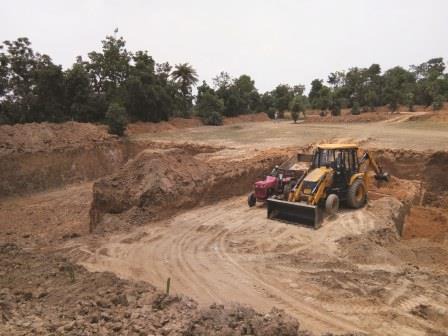 |
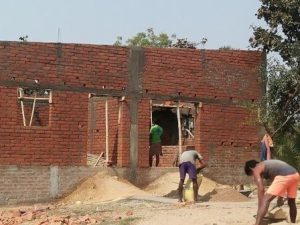 |
| Improvement of the existing reservoirs |
Construction of the water treatment equipment |
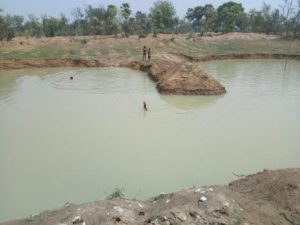 |
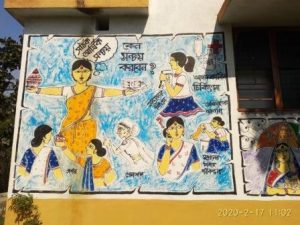 |
| Improved existing reservoirs | Wall painting for community awareness on the water treatment equipment |
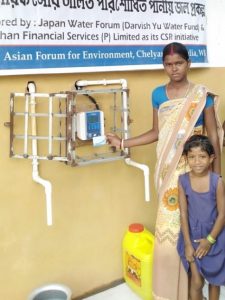 |
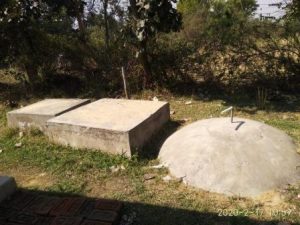 |
| A leader of community group with installed water vending unit |
Constructed biogas generator |
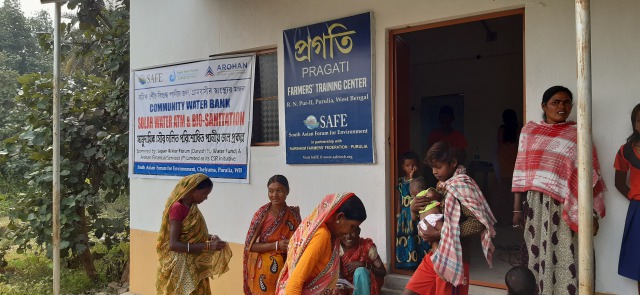 |
| A building which installed baiogas kitchen |
The project was carried out by the SAFE in cooperation with the people in the Cheliyama Village and stakeholders by means of the Darvish Yu Water Fund which was donated by Mr. Darvish Yu (a member of the Chicago Cubs of Major League Baseball) and many other donors.
We offer our sincere thanks for all of your warm supports and cooperation.
▼For more information on the previous projects by the Darvish Yu Water Fund and application for the Fund▼
https://www.waterforum.jp/en/what_we_do/grass_roots_projects/darvish
(Reported by Shigenori Asai, Director and Akie Gunji, Sub Manager)
